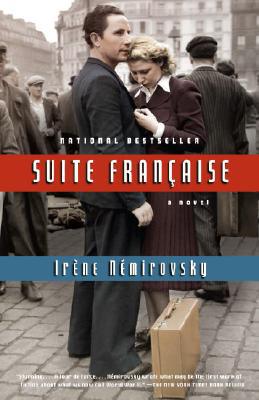This summer has been a busy one for 20th century historians. First we celebrated the 70th anniversary of the liberation of France in 1944, and soon we will recognize the beginning of World War I in 1914. It’s been a great time to dive into the sea of new books about both wars.

I’d like to recommend an old book, forgotten by many, that was secretly published in France in 1942: Le Silence de la Mer (The Silence of the Sea) by Jean Bruller, alias “Vercors.”
It is the story of an older man who lives with his niece in a small town in France that is occupied by the Germans in 1940. A polite and aristocratic German officer is quartered in their home.
The German greets them in good French and offers an apology: “I am extremely sorry. . . . It had to be done, of course. I would have avoided it if I could.”
The Frenchman and his niece do not respond. You can feel the silence fill the room: “The silence was unbroken, it grew closer and closer like the morning mist.” The officer begins to grasp what is happening. The Frenchman and his niece are refusing to speak to him. They are creating their own form of resistance. Silent and stoic, polite but proud. The officer is taken aback, but then smiles and says, “I feel a very deep respect for people who love their country.”
The rest of the book is the story of the German’s stay, filled with gesture and nuance, but the only person who speaks until the very end is the German. We learn a great deal about the German officer through his monologues at night in front of the fire. The uncle, who narrates the story, explains:
I can’t remember today everything that was said during the course of more than a hundred winter evenings, but the theme hardly ever varied; it was the long rhapsody of his discovery of France: how he had loved her from afar before he came to know her, and how his love had grown every day since he had the luck to live there. And believe me, I admired him for it. Yes, because nothing seemed to discourage him, and because he never tried to shake off our inexorable silence by any violent expression.
The Frenchman and his niece grow to admire the German, despite their circumstances. The niece’s gestures betray a developing fondness. The German is hopeful and somewhat deluded that the occupation can turn out well, both for him and the niece, and for both countries as well.
The niece speaks but one word to the German, and only at his final parting. It’s a very powerful story, beautifully done. The simplicity is all on the surface, much like its title, The Silence of the Sea. Beneath the veneer of politeness is a hidden intensity, dignity and power.
In the literary introduction to my edition of the book (Berg 1993 paperback) it explains that Bruller based the cultured German character on a real German officer who stayed in Bruller’s mother’s home, to whom Bruller never spoke.
I would recommend this short but powerful story to anyone who enjoyed Suite Francaise by Irene Nemirovsky. You may have already recognized this book’s similarity to the second novella in Suite Francaise in which French villagers adjust to the presence of German soldiers during the occupation. However, there is good news about the author of Silence of the Sea, unlike Nemirovsky’s tragic story. Jean Bruller (who was Catholic) took great precautions in the face of enormous risks in getting his story published. He never even told his own wife and mother about the book or his nom de plume as “Vercors.” Not only did Bruller survive the war, he was still alive in 1988 when he helped prepare his story for republication.
The edition I ordered is especially good for those of us working on our French. It is a bilingual edition with historical and literary introductions, explanatory notes and even a glossary of French terms. The story itself is less than 20 pages long. For those with further and deeper interest in the subject, the bibliography offers a thorough list of books and articles about the French Resistance and Vercors in particular.
For further reading:
Some V-E Day Reading Recommdations on this blog: https://americangirlsartclubinparis.wordpress.com/2012/05/08/some-v-e-day-reading-recommendations/


You must be logged in to post a comment.